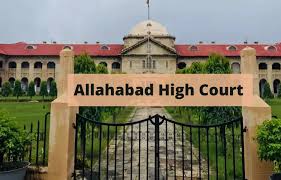
New Delhi. The President has declared emergency. There is nothing to worry about.. With these words on the radio, Prime Minister Indira Gandhi declared emergency on 25 June 1975. It lasted till 21 March 1977. This period of almost two years is considered a black spot on Indian democracy. During this period, civil rights were violated on a large scale.
Allahabad High Court decision
The main reason for the Emergency was the Allahabad High Court's decision on June 12, 1975, which declared Indira Gandhi's election as MP from Rae Bareli as invalid. In the 1971 general election, her opponent from the Rae Bareli constituency, Raj Narain, had filed a case against her accusing her of using government machinery to manipulate the election. She was found guilty and was disqualified from contesting elections for the next six years.
he country turned into a prison overnight
Within hours of the declaration of emergency, electricity supply to the offices of major newspapers was cut off and many opposition leaders including Jayaprakash Narayan, Raj Narayan, Morarji Desai, Charan Singh, George Fernandes were arrested. During this period, Indira Gandhi granted herself extraordinary powers using Article 352 of the Indian Constitution.
The Maintenance of Internal Security Act (MISA) was amended through an ordinance to allow detention of any person without trial. The most controversial 42nd Amendment of the Indian Constitution was passed. It reduced the power of the judiciary. This amendment changed the basic structure of the Constitution.
RSS was also banned
26 organisations including Rashtriya Swayamsevak Sangh (RSS) and Jamaat-e-Islami were also banned. Film actors who were vocal critics of the Emergency also had to face its brunt. Kishore Kumar's songs were banned from being played on radio and Doordarshan. Dev Anand also had to face an informal ban.
More than 60 lakh people were sterilized
Sterilization proved to be the most oppressive campaign during the Emergency. The responsibility of implementing the sterilization decision was on Sanjay Gandhi. To prove himself in a short time, Sanjay Gandhi adopted a very strict stance regarding this decision. During this time, people were sterilized by entering their homes, taking them off buses and by offering bribes. According to a report, more than 60 lakh people were sterilized across the country in just one year.
Formation of Shah Commission
After coming to power in 1977, the Janata Party set up the Shah Commission headed by Justice JC Shah, a retired Chief Justice of the Supreme Court of India, to investigate various aspects of abuse of power, malfeasance and excesses during the Emergency period. The report submitted by the Commission estimated that more than one lakh people were arrested under preventive detention laws during the Emergency.
Read More: 'They go to heaven but don't return home...' Congress MP posts emotional post on Khamenei's death
--Advertisement--

 Priya
Priya Share
Share



